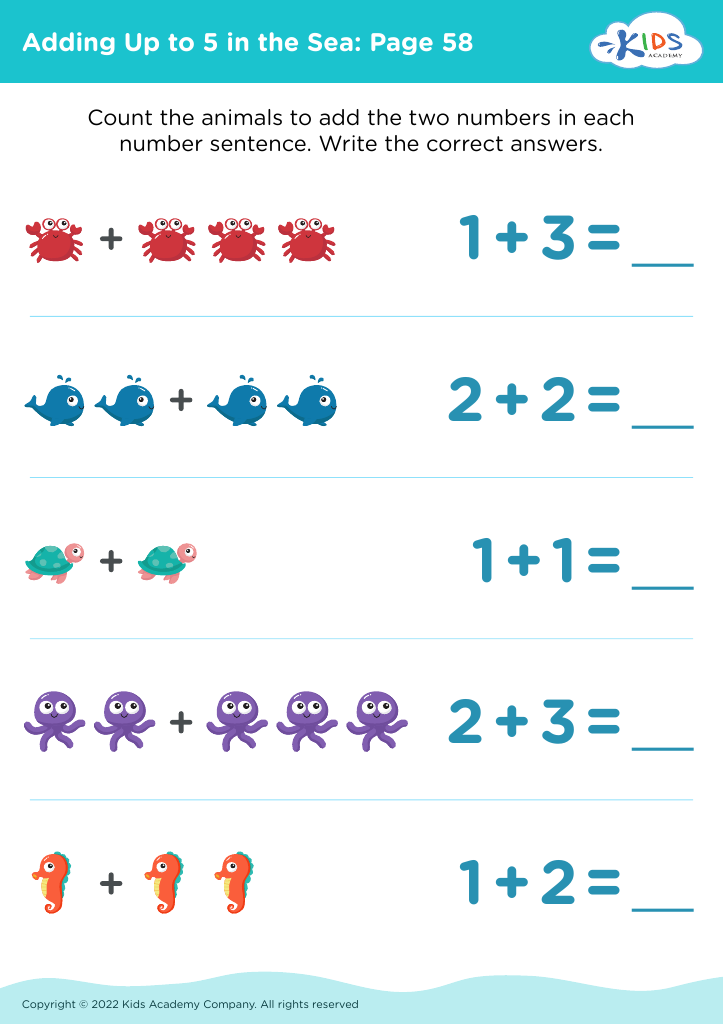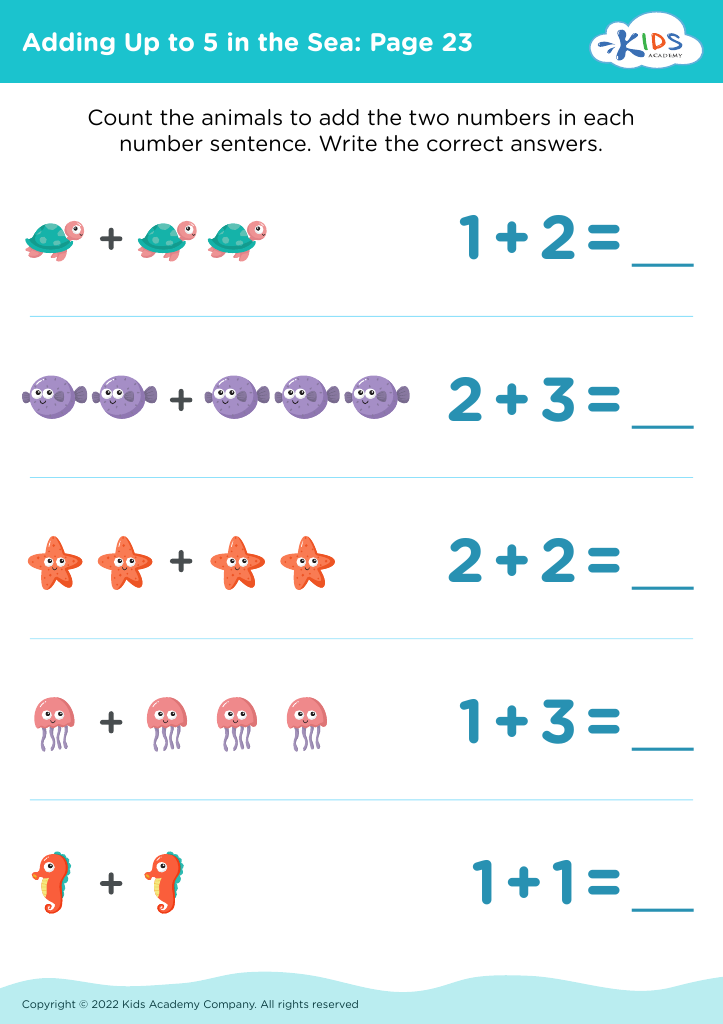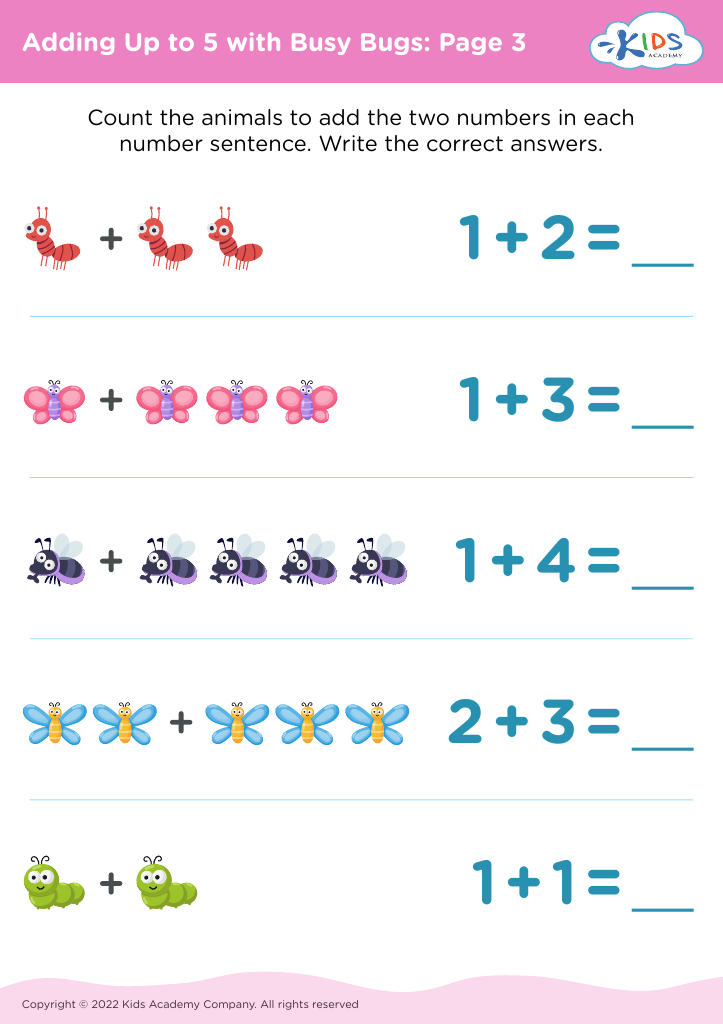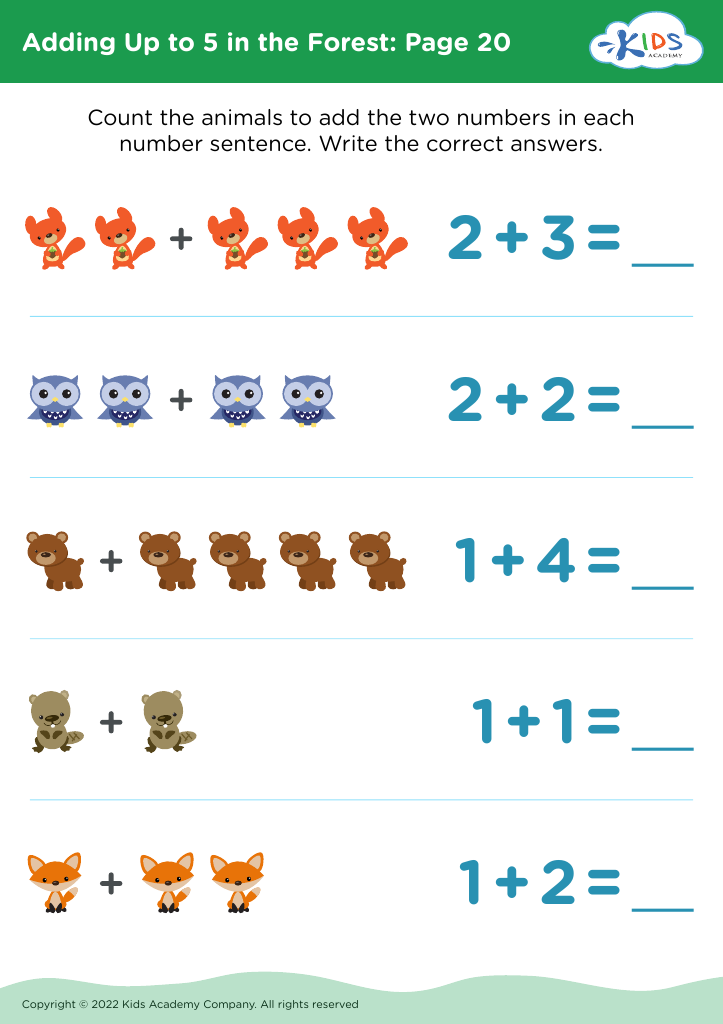Understanding numerical values Addition & Subtraction Worksheets for Ages 5-9
4 filtered results
-
From - To
Boost your child's math skills with our "Understanding Numerical Values: Addition & Subtraction Worksheets for Ages 5-9" at Kids Academy! These engaging worksheets are designed to help young learners master the essential concepts of addition and subtraction. Through fun activities, children explore numerical values in a meaningful way, enhancing their problem-solving abilities and building a strong math foundation. Perfect for both classroom and home use, these worksheets cater to varied learning styles, ensuring every child experiences success and confidence in math. Start their journey to numerical proficiency today with our expertly crafted learning resources!
Understanding numerical values, addition, and subtraction is crucial for children aged 5 to 9 as these fundamental concepts pave the way for their future mathematical learning and everyday decision-making. For parents and teachers, fostering these skills early can boost children's cognitive development and academic achievement.
Firstly, comprehension of numerical values helps children grasp the concept of quantity, which is foundational for all subsequent mathematical learning. Knowing that '5' represents a set of five items enables children to visualize and manipulate numbers thoughtfully.
Addition and subtraction are the building blocks of more complex operations. Mastery of these skills improves children's problem-solving abilities and logical thinking. They become equipped to tackle more advanced mathematical concepts, such as multiplication and division, with greater confidence.
Moreover, these basic arithmetic skills are important for everyday tasks, like handling money, telling time, and measuring quantities. When children understand addition and subtraction, they can also make more informed decisions and manage their daily lives better.
Teachers and parents who prioritize these skills create a positive learning environment that nurtures a child's curiosity and enthusiasm for math. Engaging and interactive methods can help sustain interest and promote a lasting understanding of these essential concepts, laying a strong foundation for future academic and personal success.





















